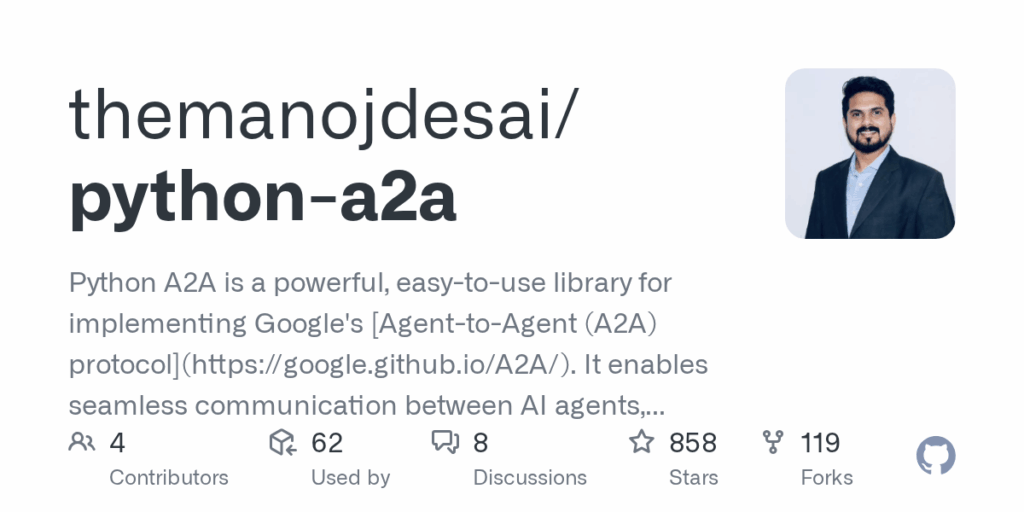python a2a
Basic Information
Python A2A is a production-ready Python library that implements Google's Agent-to-Agent (A2A) protocol with first-class support for the Model Context Protocol (MCP). It is designed to help developers build interoperable multi-agent systems, A2A-compatible agents, MCP tool servers and clients, and visual workflows. The project provides server and client components, agent discovery and registry facilities, an AgentNetwork abstraction for managing multiple agents, a workflow engine for orchestrating complex multi-agent interactions, streaming clients for real-time responses, and a command-line interface and Agent Flow UI for visual workflow construction and management. The README and examples show how to run agents, compose networks, wire MCP providers, integrate LLM backends, and deploy in production environments.








